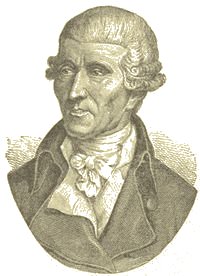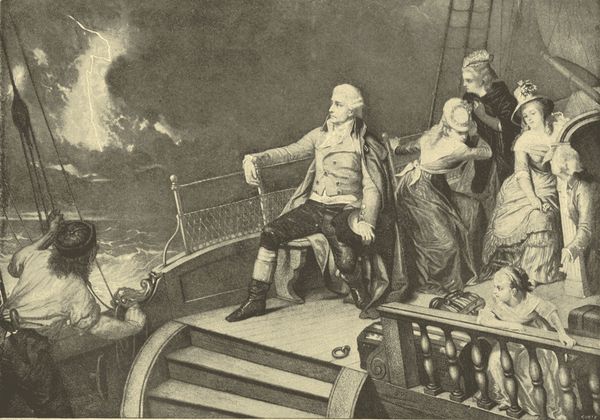| Haydn (1732-1809) |
| www.studenthandouts.com ↣ Historical Figures ↣ H Names ↣ Haydn (1732-1809) |
 Franz Joseph Haydn, born on March 31, 1732, in Rohrau, Austria, is often referred to as the "Father of the Symphony" and the "Father of the String Quartet" due to his substantial contributions to these genres. Haydn's influence on the development of classical music was profound, and his works laid the groundwork for future composers like Mozart and Beethoven.
Franz Joseph Haydn, born on March 31, 1732, in Rohrau, Austria, is often referred to as the "Father of the Symphony" and the "Father of the String Quartet" due to his substantial contributions to these genres. Haydn's influence on the development of classical music was profound, and his works laid the groundwork for future composers like Mozart and Beethoven.
Haydn's early musical training began in his village, but his talent soon took him to Vienna, where he became a choirboy at St. Stephen's Cathedral. After his voice broke, he supported himself through various musical jobs, eventually securing a position as Kapellmeister (music director) for the wealthy Esterházy family in 1761. This role provided Haydn with the stability and resources to experiment and develop his unique style. He remained with the Esterházy family for nearly three decades, composing a vast array of symphonies, operas, string quartets, and other works. One of Haydn's most significant contributions was the development of the symphony. He composed 104 symphonies, each showcasing his innovative use of form, melody, and harmony. His "London Symphonies," written during his visits to England in the 1790s, are particularly celebrated for their brilliance and inventiveness.  Haydn also played a crucial role in the evolution of the string quartet, composing 68 quartets that expanded the genre's expressive range and structural complexity. His quartets were characterized by conversational interplay between instruments, setting a new standard for chamber music.
Haydn also played a crucial role in the evolution of the string quartet, composing 68 quartets that expanded the genre's expressive range and structural complexity. His quartets were characterized by conversational interplay between instruments, setting a new standard for chamber music.
Beyond symphonies and quartets, Haydn's oratorios "The Creation" and "The Seasons" are masterpieces that demonstrate his ability to blend dramatic narrative with musical expression. These works were highly influential and remain staples of the choral repertoire. Haydn's legacy is marked by his innovative spirit, prolific output, and the joy and wit often found in his music. He died on May 31, 1809, but his contributions to classical music continue to be celebrated and studied, making him a central figure in the Western classical tradition. |
| www.studenthandouts.com ↣ Historical Figures ↣ H Names ↣ Haydn (1732-1809) |








